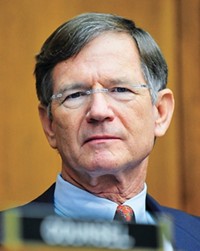Advertisement
Grab your lab coat. Let's get started
Welcome!
Welcome!
Create an account below to get 6 C&EN articles per month, receive newsletters and more - all free.
It seems this is your first time logging in online. Please enter the following information to continue.
As an ACS member you automatically get access to this site. All we need is few more details to create your reading experience.
Not you? Sign in with a different account.
Not you? Sign in with a different account.
ERROR 1
ERROR 1
ERROR 2
ERROR 2
ERROR 2
ERROR 2
ERROR 2
Password and Confirm password must match.
If you have an ACS member number, please enter it here so we can link this account to your membership. (optional)
ERROR 2
ACS values your privacy. By submitting your information, you are gaining access to C&EN and subscribing to our weekly newsletter. We use the information you provide to make your reading experience better, and we will never sell your data to third party members.
Policy
Prioritizing Science Funding
Budget: House committee members outline science funding they think the nation can do without
by Susan R. Morrissey
October 24, 2011
| A version of this story appeared in
Volume 89, Issue 43

M embers of a key congressional science committee believe the fiscal 2012 federal budget could be trimmed by over $1.5 billion through cuts to science agencies without undermining the role of science and innovation in the U.S.’s long-term economic growth. The conclusion comes in a detailed letter from 11 Republican members of the House of Representatives Science, Space & Technology Committee to members of Congress’ Joint Select Committee on Deficit Reduction. This so-called supercommittee was assembled as part of last summer’s debt-ceiling deal between Congress and the White House.
The letter advocates prioritizing “research and development programs that protect our national security and leadership, allow private investors and the marketplace to thrive without undue federal influence, and have the most potential for sustained long-term growth.” The letter identifies programs that should continue to be supported and others that could be cut.
The letter calls for protecting basic research funding—including the budget for NSF and NIST core labs. But it urges cutting applied research programs that, Republicans argue, pick winners and losers in the marketplace. For example, the group proposes abolishing funding for the Department of Energy’s Advanced Research Project Agency-Energy program. Favored by Democrats and the Obama Administration, ARPA-E supports transformative energy research projects.
The science committee’s recommendations are “nothing new,” says Anthony Pitagno, assistant director for advocacy at ACS, which publishes C&EN. The suggestions, he notes, are consistent with the majority Republicans’ agenda.
More than 30 congressional committees met the statutory deadline of Oct. 14 to submit budget reduction recommendations to the supercommittee, which has until Nov. 23 to formulate a plan that would cut $1.2 trillion in federal spending over the next decade. Congress then has until Dec. 23 to approve the plan. Otherwise, automatic, across-the-board spending cuts will kick in.



Join the conversation
Contact the reporter
Submit a Letter to the Editor for publication
Engage with us on Twitter